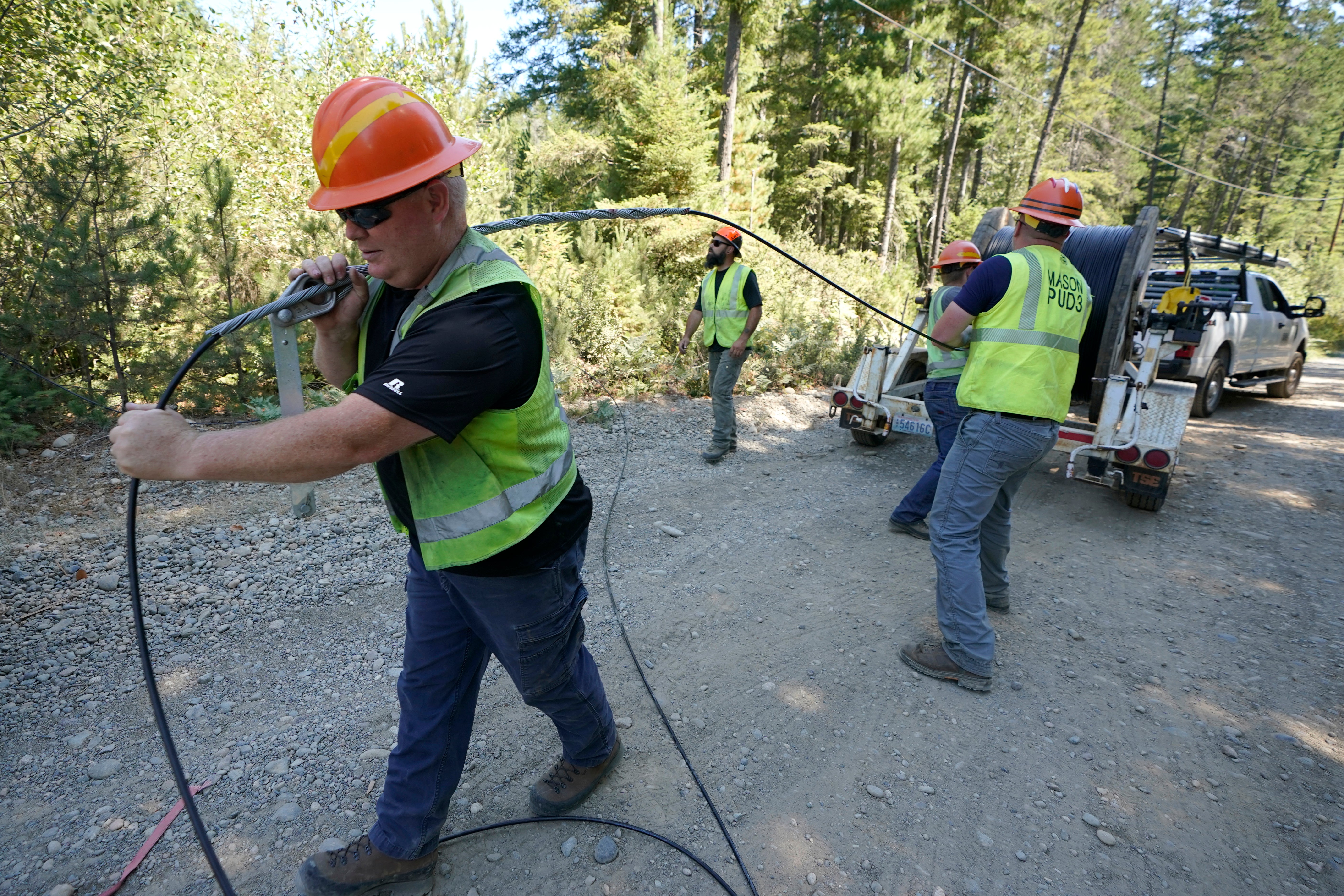LOCALIZE IT: Rural towns get money for high-speed internet

Your support helps us to tell the story
From reproductive rights to climate change to Big Tech, The Independent is on the ground when the story is developing. Whether it's investigating the financials of Elon Musk's pro-Trump PAC or producing our latest documentary, 'The A Word', which shines a light on the American women fighting for reproductive rights, we know how important it is to parse out the facts from the messaging.
At such a critical moment in US history, we need reporters on the ground. Your donation allows us to keep sending journalists to speak to both sides of the story.
The Independent is trusted by Americans across the entire political spectrum. And unlike many other quality news outlets, we choose not to lock Americans out of our reporting and analysis with paywalls. We believe quality journalism should be available to everyone, paid for by those who can afford it.
Your support makes all the difference.Federal officials announced Thursday that $401 million in grants and loans are being distributed to entities in 11 states to fund programs to reach and improve the speed of internet for rural residents, tribes and businesses.
“Connectivity is critical to economic success in rural America,” U.S. Agriculture Secretary Tom Vilsack said in a statement tallying the number of people who could be helped at about 31,000 in states including Alaska, Arizona, Arkansas, California, Colorado, Idaho, Montana, New Mexico, Nevada, North Dakota and Texas.
Here is some some background and resources for localizing the story:
AP'S LATEST COVERAGE
— Feds: $401M will add high-speed internet to rural US places
— EXPLAINER: What the $65B broadband service plan will do
WHERE IS THE MONEY COMING FROM?
Funding is through the government's ReConnect Program and an award funded through the Agriculture Department's Telecommunications Infrastructure Loan and Loan Guarantee program.
Vilsack said the department plans more spending in coming weeks as part of a $65 billion Biden administration plan to also use American Rescue Plan Act and Bipartisan Infrastructure Law funds to expand affordable, high-speed internet to all communities in the U.S.
WHERE IS THE MONEY GOING?
Rural areas and towns with a population of 5,000 or fewer are eligible, along with federally recognized tribes. Applicants must serve an area where high-speed internet download speeds are lower than 100 megabits per second (mbps) and upload is lower than 20 mbps. The applicant must commit to providing high-speed internet at download and upload speeds of 100 mbps at every location in its service area.
— The ReConnect program in August 2021 allocated $167 million for projects in 12 states: Alaska, Arizona, Colorado, Georgia, Missouri, North Dakota, Oklahoma, South Carolina, Tennessee, Texas, Utah and Virginia.
— Earlier this month, the program allocated $21 million to expand high-speed internet in two rural Upstate New York counties.
— Thursday's nearly $401 million in grants and loans are going to:
Alaska: Bristol Bay Telephone Cooperative, $34.9 million; Alaska Power & Telephone Wireless, $29.3 million; Unicom Inc., $31 million; Cordova Telephone, $21.4 million.
Arizona: Table Top Telephone Co., $3.7 million.
Arizona and Idaho: Midvale Telephone Co., $10.6 million.
Arizona and New Mexico: Valley Telephone Cooperative, $44.9 million.
Arkansas: Arkansas Telephone Co., $11.9 million.
California: The Volcano Telephone Co., $28.3 million; Ponderosa Telephone Co., $12.9 million.
Colorado: San Luis Valley Rural Electric Cooperative, $2 million.
Montana: Blackfoot Telephone Cooperative, $4 million; Nemont Telephone Cooperative, $25 million.
Montana and North Dakota: Reservation Telephone Cooperative, $18.5 million.
New Mexico: Continental Divide Electric Cooperative Inc., $3.7 million; ENMR Telephone Cooperative, $14.7 million; Penasco Valley Telephone Cooperative, $28.9 million; Tularosa Basin Telephone Co., $11.6 million.
Nevada: Uprise LLC, $27.2 million.
Texas: Central Texas Telephone Cooperative, $19.6 million; Five Area Telephone Cooperative, $16.6 million.
PUBLISHABLE CONTEXT
The persistent U.S. gap between the broadband haves and have-nots — dubbed the “digital divide” — became glaringly obvious when school, work and health care shifted online during the coronavirus pandemic.
The Federal Communications Commission has estimated that millions of Americans don’t have access to broadband at speeds needed to work and study online — 25 mbps downloads and 3 mbps uploads. Outside groups have made higher estimates.
Government subsidies to fund industry upgrades have focused on places where customers are sparse and companies don’t have incentives to build infrastructure because they may not make their money back.
Internet service affordability also is a concern. Mitch Landrieu, White House infrastructure coordinator, told reporters Wednesday that the government infrastructure plan also earmarks funds to provide a $30 monthly benefit to help low-income people pay their internet bill.
___
Localize It is an occasional feature produced by The Associated Press for its customers’ use. Questions can be directed to Katie Oyan at koyan@ap.org.